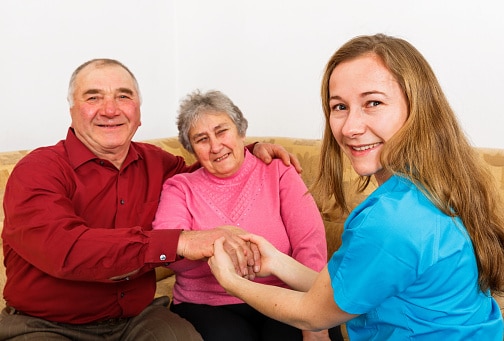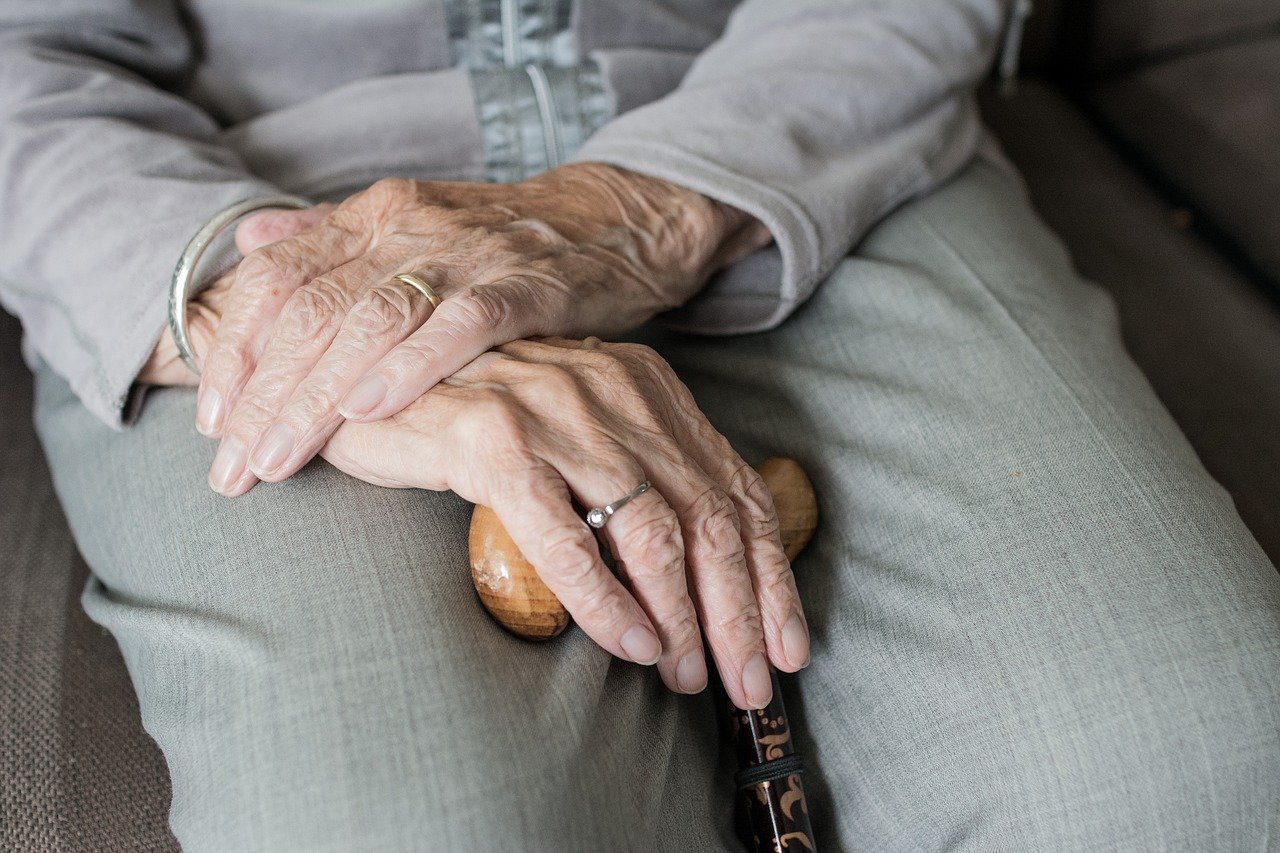
50+ Key Elderly Caregiver Interview Questions
Hiring a caregiver is an important decision. Specifically, getting the right caregiver for your loved one is a big part of ensuring high-quality care. Asking the right interview questions can help you do just that.
As you interview different candidates, you’ll want to ask key questions to understand who the candidate is and how he/she will handle the job’s challenges. Let’s go over key caregiver interview questions, as well as some tips for the hiring process.
About the elderly caregiver hiring process
Why is hiring the right caregiver important?
The caregiver you hire will be interacting with your loved one every day, as well as ensuring his/her safety and well-being. It’s a huge responsibility. The experience of in-home care depends greatly on the caregiver and how this person is able to interact and connect with your loved one. A list of skills isn’t enough. You’ll want to look at the right fit for your loved one’s condition and personality, as well as the caregiver’s experiences and profile.
What is the ideal caregiver profile?
There’s no one ideal caregiver profile. However, given the personal nature of caregiving, it’s not just about having experience and training. You’ll want to ask yourself a few questions about the candidate:
- Do I feel comfortable and confident leaving my loved one with this caregiver?
- Does this caregiver embody values of compassion and ethics?
- Does this caregiver know how to act in case of emergency?
Of course, to get to the bottom of these questions, you’ll need to get plenty of information from the candidates and see how they respond to your interview questions.
What extra considerations are there for dementia patients?
Dementia patients have unique caregiving needs – and require unique caregiving skills. A caregiver in this situation should understand how to handle anger, stubbornness, and confusion from the patient. At the same time, it’s common for dementia patients to lose focus and get easily scared by abrupt changes. When hiring a caregiver for a loved one with dementia, you’ll want to ensure the candidate has experience in dementia care and works with compassion during changes in mood.
What are the steps in the hiring process?
Hiring an elderly caregiver requires a few steps, including:
- Writing a clear job description
- Receiving applications for the job
- Narrowing down the pool for interviews
- Conducting interviews for final candidates
- Optional: introducing the candidate to the patient
- Conducting any reference or background checks
- Offering the job to your first-choice candidate!
This process may take weeks or even months. You should start early and don’t give up until you find who you think is a good fit.
What expectations do you have for the caregiver?
Before you go into the interview, you should keep your expectations top of mind. Focus on your loved one’s needs and be open to hearing from all candidates before making up your mind about which candidates are the best fit.
What should you look for in candidate responses?
During the interview, you’ll want to listen for the content of the responses. For example, how they would handle emergency situations. At the same time, you should get a feel for the candidate’s personality and fit. Answering questions with irritation or without confidence may be red flags that the candidate isn’t right for this caregiving job.
How should you choose the right candidate after the interview?
After conducting interviews, you should review your notes for each candidate and narrow down your top two or three choices. Often at this stage, these top candidates would all be good fits for the position. Go with your instinct about which candidate to offer the job, but don’t cut ties with the other top candidates until you’ve made a decision.
Key questions to ask during the caregiver interview
Asking the right questions can make a difference in getting the right candidate for your loved one. You’ll want to err on the side of asking too many questions, instead of too few.
During the caregiver interview, be sure to cover your bases to find out the candidate’s past experience, skills and training, dementia-specific care, patient-caregiver fit, hypothetical situations, role-based expectations, logistics, and red flags. This way, you’ll understand how the candidate will handle the job’s most challenging areas.
Below, you’ll find suggestions for key questions that can give you all the essential information about your candidates.
Past experience
- What experience do you have working with the elderly?
- What types of seniors and health conditions have you previously worked with?
- Why did you leave your last job?
- What are three positive things your past clients would say about you?
- Describe a time when you faced a difficult client and what you did to resolve the problem.
- Tell me about a mistake you made while caring for a client.
Skills and training
- What caregiving certification training do you have, if any?
- Are you comfortable performing care/hygiene tasks for a senior?
- Do you keep daily records of care?
- Do you know how to cook according to special health requirements?
- Do you have a driver’s license and auto insurance?
- Are you CPR certified? Have you ever had to provide first aid to a client?
Dementia-specific care
- Do you have experience with memory or cognitive impairments?
- How comfortable are you with dementia patients?
- What steps would you take to ensure a dementia patient’s well-being?
- Imagine a client with dementia calls you by the wrong name, or accuses you of something you didn’t do. What would you do?
- What would you do if a client with dementia went missing?
Patient-caregiver fit
- Imagine that your loved one needed in-home care. Describe the kind of caregiver you would want. How well do you think you meet these criteria?
- Who is your favorite type of client? Least favorite?
- How do you deal with a person who becomes angry or stubborn?
- Are there any aspects of caregiving that you find to be difficult?
- How do you support a senior’s dignity during care?
- Do you become personally involved when your client suffers?
- What could your future employers do differently than your past employers to help you be more effective and fulfilled in your job?
- Why have you decided to become a care provider?
- Why should I hire you?
Hypothetical situations
- What would you do if your client didn’t want to take his/her medication?
- How would you react if your client began to shout or swear at you?
- How would you handle incontinence incidents with your client?
- How would you try to bond with a dementia patient?
- If something happened during care that made you uncomfortable, how would you deal with the situation?
- In the case of an emergency, what would you do?
Role-based expectations
- Are you looking for a short-term or long-term role?
- Are you willing to do household chores?
- Are you open to providing emotional care?
- What are your expectations for vacation time?
- Will you drive to appointments or errands when needed?
- Are you comfortable with pets?
- Are you following COVID safety protocols? How will you protect my loved one from COVID?
- Is there anything in the job description you’re uncomfortable doing?
Logistics
- What are your responsibilities outside of work?
- Will you be working other jobs that might be affected if I’m delayed?
- Are you able to work the hours needed?
- Are you available during the holidays? What about working nights or weekends?
- What is your contact information and how/when do you prefer to be contacted?
- How can I best reward you for a job well done?
- Describe for me a circumstance in which you believe it would be justified to be late for work.
Red flags
- Do I have your permission to get a background check?
- What services do you charge additional fees for?
- Are you willing to sign that you will not have guests come into our home unless you received prior approval?
- Are you willing to sign a contract stating you will not accept money or gifts from the patient without clearing it with me?
- Can you share a bit about your own self-care routine?
During the interview, it’s vital to get all the information you need, as well as a feel for the candidate’s personality. The patient-caregiver fit is often the most important part of having a successful caregiving experience. You may even consider getting your loved one and the caregiver candidate in the same room before making your decision.
Elderly caregiving can be a complex matter, but with these interview tips you’re sure to get a good candidate. If you’re looking for more information about senior health and caregiving, be sure to check out My Caring Plan’s resources.
Related Articles

Elder Law Attorneys: A Comprehensive Guide
If you are someone who is taking care of a senior or has an elderly loved one, you should consider working with an elder law attorney. Though you may not expect it, individuals begin to face new and more complex legal concerns as they get older. Actions that may have seemed trivial when they were […]

When Is It Time for Assisted Living?
Wondering if it is time for assisted living for your loved one is a common question for caregivers. As a caregiver, you might have been considering the question for months or possibly even years. Your loved one might have declined to continue the discussion as the thought of moving out of their family home and […]

All About Adult Day Care: Community and Costs
Adult day care is a fairly new concept for caregivers. The basic idea is to provide a secure place where seniors can enjoy social activities during the day and be provided nursing care as needed. It’s a hybrid model of eldercare that prioritizes community. At the same time, seniors get help with common custodial tasks […]

Respite Care: An Overview
Caregiving can be overwhelming at times. That’s why taking a break is essential for recharging your battery. Respite care, also called short break care, is a way for caregivers to get temporary care for their loved ones so they can take some time to rest. Getting this “me time” of respite care can renew the […]

An Overview of Senior Rehabilitation Centers
Recovering from injury or illness in your golden years may take time and support. That’s where senior rehabilitation centers become essential. If you need a temporary stay to recover from injury or illness, senior rehabilitation centers can be the solution to get expert care and daily support. In this article, we’ll give you an overview […]

A Caregiver’s Guide to ADLs and IADLs
This article has been medically reviewed by Dr. Martin Duggan in 2021. This content is not intended to be a substitute for professional medical advice, diagnosis, or treatment. Always seek the advice of your physician or another qualified health provider with any questions you may have regarding a medical condition. As a family caregiver, your […]